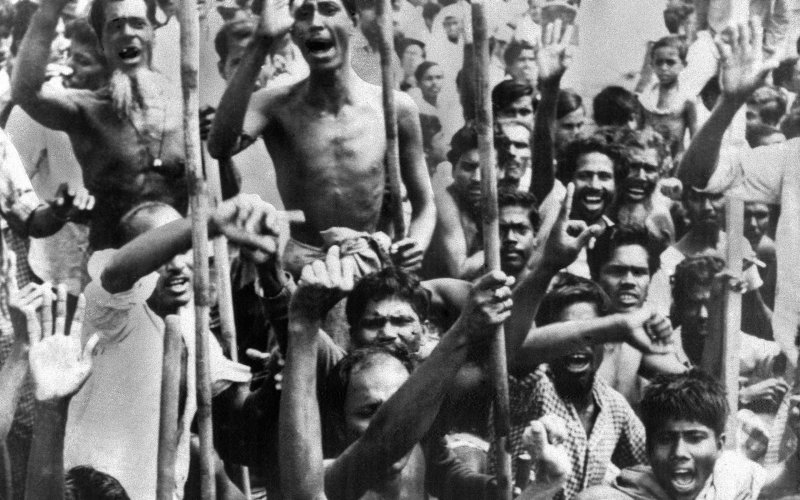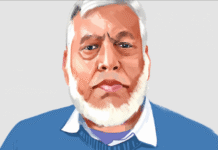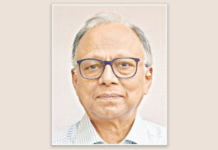It was 43 years ago.
On the radio, I hear the ardent, raspy voice of an old writer speaking to the young people of France about a country not yet born but already dying.
That writer was André Malraux.
And the country was Bangladesh, where the “Never again!” of our fathers was about to be betrayed. As in Spain in 1936, the voice was urging the formation of International Brigades.
A handful of us answered the call.
In me that call has abided all my life, resurfacing in every commitment I have made since then.
I have come back to Dhaka today to join my Bangladeshi friends of yesterday and today, under the aegis of the Alliance Française and the office of veterans’ affairs (part of the Ministry of Liberation War Affairs), in welcoming the author of Man’s Fate to this intimate garden, where he will now feel just at home as he would if he were in Teruel, among the resistance fighters of the Corrèze, or in the Colmar pocket in Alsace.
I hear the voice of André Malraux.
I hear it again in my ears, as I did that day in October 1971, ardent and raspy, unchanged by the passage of time.
Except that it is to you now, gathered here at the entrance to the University of Dhaka, where, shortly before his death, he gave one of his most inspired speeches, that his fraternal exhortation is addressed.
Stand up, youth of Bangladesh.
Take pride in your history and in the struggle that forged you.
Know that the world honors in and through you the builders of a country that is both immemorial and fragile, always under threat.
Know that many in Europe stand ready, should you wish it, to help you tear away the evil veil that shrouds the millions of dead—countless, nameless, faceless, and often unburied dead—whose sacrifice in that terrible year of 1971 made you a free people. A year and a day after the collapse of Rana Plaza the unburied martyrs of 1971 call to the eight victims still entombed in the wreckage, whose memory I honored this morning at the ruined factory.
And dare, my friends, to remind the world who you really are: not that miserable sweatshop, not that reserve army of victims sacrificed on the altar of fashion and vanity, but the country of the man whom you called, affectionately, “Bangabandu”—Sheikh Mujibur Rahman, the father of the nation and a source of inspiration for people here and elsewhere, indeed for all who yearn, across the planet, for an enlightened Islam, an Islam that will advocate law and measure, an Islam tolerant, moderate, and respectful of others—of minorities in particular.
The victory of this enlightened Islam over fundamentalism echoes one of the great challenges of our own era.
You can be the champions of that battle.
You possess the culture, the values, and the political and constitutional heritage that will enable you, if you choose, to be on the front line of that fight.
From Bosnia-Herzegovina to Persia, from those nostalgic for the Córdoba of the caliphate to the vanquished of the Arab Spring, stretches a silent international throng, a vast meridian of the nonaligned who await their herald. For the Bangladesh of today, the herald’s role would be a fine one for a great country faithful to the glorious struggle of its founders, a role that, amid the concert of nations, beckons to young Bangladesh.
Source: The Daily Beast










